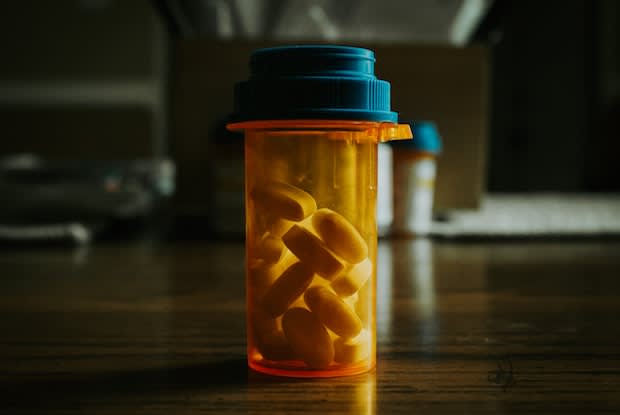Table of Contents
I. Possible Interactions with Antibiotics
II. Warfarin (Blood Thinners) and Vitamin K
Possible Interactions with Antibiotics
The majority of people have likely been prescribed antibiotics at some point in their life. These medications are used to treat infections caused by bacteria. Antibiotics work to kill harmful microbes and prevent them from reproducing. The discovery of antibiotics changed modern medicine and has prevented the death of thousands across the world.
If you are prescribed antibiotics, your doctor may recommend Retapamulin Cream, amoxicillin, Levaquin (levofloxacin), and Pen VK (penicillin V) to cure your bacterial infection. Common infections that may be cleared up with antibiotics include:
- Skin infections
- Strep throat
- Bladder and kidney infections
- Whooping cough
- Bacterial pneumonia
- Meningitis (swelling of the brain and spinal cord)
- Ear and sinus infections
- Dental infections
Over time, some strains of bacteria can become resistant to antibiotics. This is typically due to the overuse of antibiotics, preventing the destruction of bacteria. If your bacterial infection requires antibiotics, you should make sure they do not interact with your prescription. A few dozen drugs are approved for use in the United States every year, so it may be difficult to keep up with drug interactions. Learn more about the possible interactions that may occur between common prescription medications, foods, and antibiotics. [1] Blood thinners like warfarin are medications used to prevent blood clots. Warfarin makes the blood flow more easily through the veins, lowering the risk of blood clots in the legs or lungs. You may be prescribed warfarin if you have: If you are taking blood thinners, you may be increasing your risk of a dangerous bleeding event. Warfarin inhibits blood clotting, so if you suffer a cut or injury while taking antibiotics and warfarin, your bleeding may be severe. [3] Vitamin K and blood thinners are linked because vitamin K is important in the body's clotting factors. High doses of antibiotics like penicillin can inhibit vitamin K activity. This may be because antibiotics slow the activity of gastrointestinal synthesis of vitamin K. Sometimes, too much vitamin K can also inhibit the function of an anticoagulant like warfarin. It is important to maintain regular consumption of vitamin K foods like leafy greens, but not to overdo it. For these reasons, make sure to consult your doctor if you are taking warfarin and eating many vitamin K foods. [4] There are several different types of antibiotics, and some may interact severely with alcohol. If you feel ill or unwell, you will likely not want to drink alcohol, but having a few drinks should not be a problem with the most common antibiotics. It is best to avoid alcohol when going through an antibiotic treatment to reduce any potential health risks. There are two types of antibiotics that you should completely avoid when drinking, metronidazole and tinidazole. Both of these antibiotics are used to treat similar ailments, such as dental or vaginal infections, leg ulcers, or pressure sores. Tinidazole may also be used to clear the gut of H. pylori bacteria. If you consume alcohol with these medications, you may experience: If you are prescribed these drugs, you should avoid alcohol for at least 48 hours after your metronidazole course and 72 hours after tinidazole. These symptoms may also arise when taking mouthwash or other medicines that contain alcohol. Other antibiotics like linezolid and doxycycline may also interact with alcohol. Linezolid may interact with fermented alcohol like wine, beer, sherry, and lager. The effectiveness of doxycycline may be reduced if you have a chronic alcohol consumption problem. [5] Typically, antibiotics are consumed with water. If you consume your antibiotics with dairy products, it can affect how your body absorbs drugs. Dairy products like yogurt, cheese, and milk have been found to interact with antibiotics. Calcium in milk can bind with antibiotic medications and prevent them from entering the bloodstream efficiently. If the medication cannot get into the bloodstream, then and infection will not clear up. Sometimes, the calcium may only affect half the drug, but that means you are only getting half the amount of medication you need for your treatment. You may want to avoid: If you like to consume dairy-rich foods, you should wait at least three hours before eating any foods that contain calcium. You do not want the effect of your antibiotics dampened by certain things in your diet. This can lead to an ongoing infection that may become serious. [7] Several common prescription drugs may interact with antibiotics. Antibiotics may be dangerous to your condition if you combine them with the following: Methotrexate: Penicillins should not be taken with disease-modifying antirheumatic drugs (DMARDs), like methotrexate. These drugs are used to treat psoriasis, rheumatoid arthritis, and other rheumatic conditions that cause inflammation. If you are taking high doses of penicillin for an infection, it can decrease the kidneys' ability to clear methotrexate from the system. This can lead to fatigue, fever, dark urine, and yellowing of the eyes or skin. Amoxicillin can be safely combined with methotrexate. Allopurinol: Allopurinol is a drug used to treat gout. Gout causes joint pain when too much uric acid is present in the body. If you take amoxicillin with this drug, you may experience allopurinol hypersensitivity syndrome. This condition can result in rash, fever, and internal organ problems. Your doctor should not prescribe amoxicillin if you have a hypersensitivity to allopurinol. [8] Birth control: Most antibiotics, like amoxicillin do not interact with oral contraceptive pills. However, a few specific antibiotics may cause a problem. Rifampin (also known as Rifadin and Rimactane) can lower the effectiveness of contraceptive pills, patches, or rings. Talk to your doctor about your birth control method if you are being prescribed certain antibiotics. [9] The content in this article is intended for informational purposes only. This website does not provide medical advice. In all circumstances, you should always seek the advice of your physician and/or other qualified health professionals(s) for drug, medical condition, or treatment advice. The content provided on this website is not a substitute for professional medical advice, diagnosis, or treatment.
Warfarin (Blood Thinners) and Vitamin K
Avoid Alcohol

Calcium-Rich Foods

Drug Interactions
